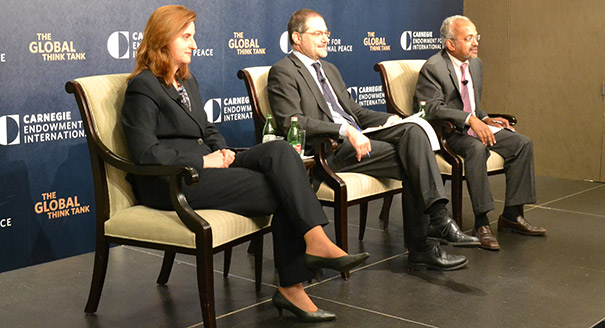Registration
You will receive an email confirming your registration.
The Arab uprisings in Tunisia, Egypt, Yemen, Libya, and Syria over the past five years represent a conundrum. Standard development indicators failed to capture or predict the outburst of popular anger during the so-called Arab Spring of 2011.
The World Bank’s Elena Ianchovichina and Shantayanan Devarajan discussed the findings of their recent report Inequality, Uprisings, and Conflict in the Arab World, and reflected on the economic origins of the Arab revolts. While many believe that income inequality was the most significant cause of the uprisings, the report weighs the role of other major drivers, mainly citizen frustrations with a shortage of quality jobs in the formal sector, poor quality public services, and governance issues. Carnegie’s Joseph Bahout moderated.
Elena Ianchovichina
Elena Ianchovichina is lead economist in the chief economist Office of the World Bank’s Middle East and North Africa region.
Shantayanan Devarajan
Shantayanan Devarajan is the chief economist of the World Bank’s Middle East and North Africa Region.
Joseph Bahout
Joseph Bahout is a visiting scholar in Carnegie’s Middle East Program.
